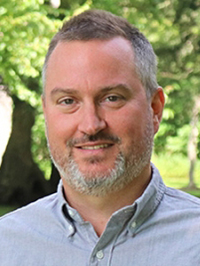The forest sector, through its advancement of sustainably managed forests and forest-based products, has a significant role to play in the circular economy and can provide critical solutions for global sustainability challenges.
Through sustainable packaging design, responsible sourcing and supply chain management, the forest sector is achieving progress on sustainability targets such as climate action, clean water, biodiversity conservation, and sustainable production and consumption. Companies are increasingly integrating the values of these sustainably managed forests into their sustainability plans and messaging. However, to increase impact the forest sector can work with CGF member companies on a few key initiatives.
First, go beyond risk mitigation to being a champion for the UN Sustainable Development Goals. Procurement of certified forest products by CGF member companies supports sustainable forest management and a wide range of global and corporate level SDG targets, including Goal 6 (Clean Water and Sanitation), Goal 7 (Affordable and Clean Energy), Goal 12 (Responsible Production and Consumption), Goal 13 (Climate Action), Goal 15 (Life on Land), and Goal 17 (Partnerships for the Goals).
Next, use credible supply-chain assurances where possible. Many CGF members, governments and civil society stakeholders already endorse the value of third party certification in expanding consumer markets for sustainable products and achieving corporate deforestation-free supply chain commitments. A pro-active, open, and inclusive approach to procuring certified forest products is a key tool CGF members can use to manage corporate deforestation risks and verify progress against performance targets.
Third, take advantage of the global availability of certified forest products. PEFC is the world’s largest forest certification organization via its global network of 45 endorsed national members, including the Sustainable Forestry Initiative (North America) and PEFC Germany. This means that certified wood and paper-based solutions are readily available across most key geographic markets.
These are just some opportunities for CGF members to engage and enhance their impacts on circular economies and sustainable packaging. Other multi-lateral organizations are also involved in pushing the value of forests and certification. For example, the World Business Council for Sustainable Development (WBCSD) Forest Sector SDG Roadmap highlights the environmental, social and economic values of certification that align with the SDGs and points to certification as an important counterweight to deforestation. Additionally, WBCSD, along with 19 other companies, announced a new initiative to protect and restore biodiversity within their supply chains and product portfolios, at Climate Week NYC in September. One of three areas of focus of this announcement is, “Eliminating deforestation, enhancing the management, restoration and protection of high value natural ecosystems.”
Forests, when managed sustainably, are the ultimate renewable resource. The forest sector understands the value that forests bring, and through innovations and partnerships is unlocking new opportunities for the sector and CGF members.
To help us contribute to this issue, our panel, made of representatives from CGF, RISE Research Institutes of Sweden, Metsä Board Corporation, The Coca-Cola Company, Heineken International and PEFC will speak on Thursday 24 October at 12.15.
This post was written and contributed by:
Daniel Pellegrom
VP, Communications
Sustainable Foresty Initiative
Fabienne Sinclair
Head of Marketing
PEFC International


